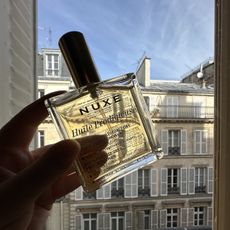6 Myths About Alcohol We've Convinced Ourselves Are True


Most Americans come of age believing certain pieces of alcohol mythology that should sound familiar, like a daily glass of red wine will make you live longer, and drinking beer before liquor will inevitably result in nausea and regret. But how many of these booze-related axioms are true?
Alcohol is at the centerpiece of so many social and cultural activities, but our formal education about the stuff is pretty minimal (in high school, they typically just teach you not to drink at all and leave it at that). So, most of us wind up accepting folk tales as facts.
To find out the truth about much of the alcohol "wisdom" we all tend to believe, we got in touch with a couple of nutrition experts. Keep scrolling to read them savagely debunking six boozy myths many people take at face value.

Myth: Eating a big meal before drinking will keep you sober.
Fact: Many of us have had those nights where we want to drink and be social but not get legitimately turnt, so we eat a big meal before going out, hoping it will help us stay sober. But according to Amy Shapiro, registered dietitian and founder of Real Nutrition, that's not really how it works. "Food in the stomach only delays the absorption of liquor entering the bloodstream. It doesn't prevent the effects," she says. In other words, if you eat a giant Chipotle burrito and then have five drinks, plan on feeling just as drunk as you would without the burrito, but a few hours later.

Myth: You'll sleep better after a few drinks.
Fact: "Drinking might make it easier to fall asleep, but that doesn't last for long," says Shapiro. That's because alcohol messes with the amount of time you are in a deep sleep but not the amount of time you're in REM—the sleep stage when your brain and body are energized. Translation: You might fall asleep quickly, but you'll probably keep waking up throughout the night.
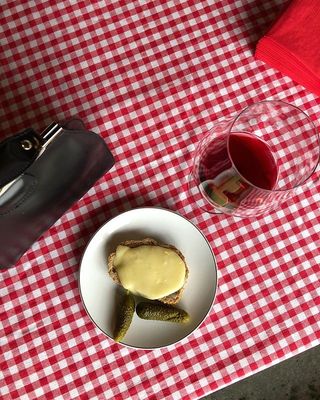
Myth: Red wine improves heart health.
Fact: General lore says that red wine is good for your heart, which in some ways is true. "Wine has been shown to increase levels of the good HDL cholesterol, provides numerous antioxidants, and contains high levels of resveratrol, a polyphenol compound that has possible anticarcinogenic effects," explains Shapiro.
But when you look deeper into the studies about red wine's effects on cardiovascular health, it's a little more complex than that. According to a 2017 report from The Washington Post, red wine's benefits are highly dependent on the drinker's lifestyle habits and diet.
For example, the Mediterranean diet encourages moderate consumption of red wine, but it also focuses on eating lots of whole plant foods. "In the Mediterranean diet, the low consumption of saturated fat, emphasis on a healthy lifestyle and, more independently, alpha-linoleic acid (an essential fatty acid) and red wine, may allow this diet to confer the much researched cardio-protective benefits," the Post reports. "Observational data around alcohol consumption and heart health suggests that a light to moderate intake, in regular amounts, appears to be healthy. However, when mathematical models have been applied to determine causation … the results have been mixed."
Some studies have found light consumption of red wine to be good for the heart; others have found it to be harmful. All in all, though, as long as you're eating healthfully, working out, and not smoking, a glass or two a few nights a week should be A-okay.

Myth: Wine has less sugar than other booze.
Fact: If you're watching your sugar intake, wine is probably not the best option after all. Hard liquor on its own has zero grams of carbs or sugar. "It's when you start adding the sweetened mixers or ordering the fancy cocktails that the sugar level goes up," says Shapiro. "It's best to order vodka, gin, or tequila with club soda and a couple of fresh lime wedges to keep the carbs and sugar level low."
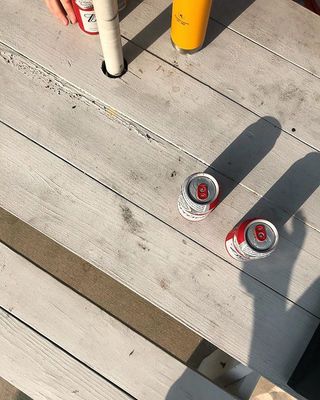
Myth: Beer before liquor, never been sicker. Liquor before beer, in the clear.
Fact: This axiom seemed ubiquitous in college, if not before, but there's no empirical logic behind it. According to Caleb Backe, a health and wellness expert for Maple Holistics, mixing different types of booze throughout the night will not in and of itself "make you sicker." "The truth is that mixing drinks only becomes risky in the sense that you lose track of how much you're actually drinking, which can then be a slippery slope," he says.

Myth: Cutting out alcohol will make you lose weight.
Fact: When going on a detox or attempting to lose weight, most people figure cutting out alcohol entirely will do the trick. But it's not actually necessary to go cold turkey on happy hour, and nixing booze from your diet won't do much for your fitness goals if everything else you're putting in your body is junky. "If you're trying to lose weight and find that you're drinking way too much alcohol, it's a good idea to cut back, but you don't have to give it up completely," says Shapiro. "Stick to the liquor of your choice with club soda, and just don't have the extra few that you might normally have. Maybe instead of having your two squares of dark chocolate that night, make the drink your dessert."
Next up: See what happened when I quit drinking for 30 days.
Disclaimer
This article is provided for informational purposes only and is not intended to be used in the place of advice of your physician or other medical professionals. You should always consult with your doctor or healthcare provider first with any health-related questions.

Tie among Linda Rodin, Hari Nef, and David Bowie.
Who are your 5 favorite people to follow on Instagram?@petracollins @katiejanehughes @alwaysjudging @bonnyrebecca @hotdudesreading
What's the beauty essential you can’t live without?If I have some brow gel and Sisley's Phyto-Lip Twist, I'm good to go forever.
What's your desert island album?Death Cab for Cutie's Transatlanticism
What's your favorite Byrdie.com story?Game of Thrones's Nathalie Emmanuel looks so achingly beautiful in our feature with her that I think it's gonna have to be that!
-
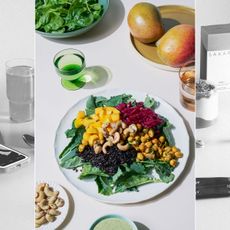 I Only Ate Sakara Life Meals for 30 Days—Here Are 7 Things That Happened
I Only Ate Sakara Life Meals for 30 Days—Here Are 7 Things That HappenedThe brand's 30-Day Fall Reset is finally here.
By Erin Jahns
-
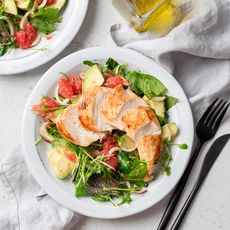 The 6 Warning Signs You're Not Getting Enough Protein
The 6 Warning Signs You're Not Getting Enough ProteinAnd what to eat to up your intake.
By Sarah Yang
-
 Everything This Professional Ballet Dancer Eats to Fuel Her For Performances
Everything This Professional Ballet Dancer Eats to Fuel Her For PerformancesHer grocery staples include high-quality French butter.
By Candice Aman
-
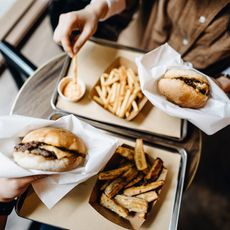 These 8 Foods Are the Worst for Rosacea—Here's What to Eat Instead
These 8 Foods Are the Worst for Rosacea—Here's What to Eat InsteadControl those flare-ups.
By Sarah Yang
-
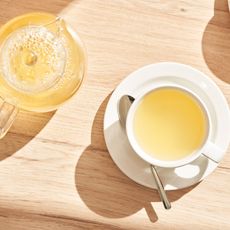 15 Things That Cause Bloating and How to Get Rid of It ASAP
15 Things That Cause Bloating and How to Get Rid of It ASAPTry these.
By Sarah Yang
-
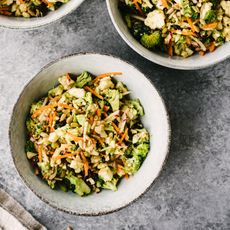 Is the Alkaline Diet Overhyped? What Experts Want You to Know
Is the Alkaline Diet Overhyped? What Experts Want You to KnowHere's how it works.
By Sarah Yang
-
 I'm an Imperfect Dietitian and My Key to Eating Healthy Meals Is Convenience
I'm an Imperfect Dietitian and My Key to Eating Healthy Meals Is ConvenienceTake a peek at my weekly grocery staples.
By Candice Aman
-
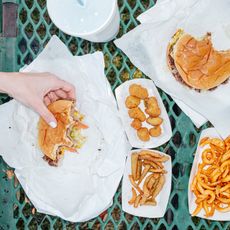 Avoid These 6 Foods—They'll Wreck Your Gut Health
Avoid These 6 Foods—They'll Wreck Your Gut HealthWhat to eat instead.
By Sarah Yang
